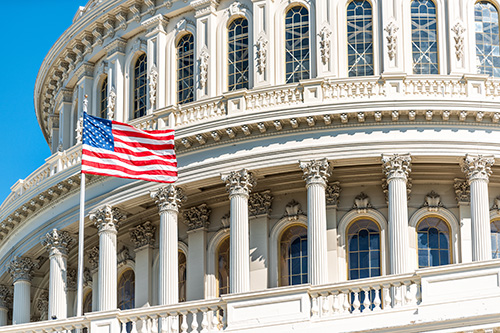Supreme Court Allows Mail-Order Abortions to Continue while Lower Court Decides Safety Issues
 The United States Supreme Court handed down its much-anticipated ruling in the Alliance for Hippocratic Medicine v. FDA lawsuit. At issue is whether the chemical abortion drug, mifepristone, should remain available by mail, without direct physician supervision, and without certain other safety regulations while the Fifth Circuit Court of Appeals considers whether the drug was wrongfully approved by the FDA. In an unsigned decision by a 7-2 vote, the Court ordered the abortion drug to continue to be available without further restrictions for now.
The United States Supreme Court handed down its much-anticipated ruling in the Alliance for Hippocratic Medicine v. FDA lawsuit. At issue is whether the chemical abortion drug, mifepristone, should remain available by mail, without direct physician supervision, and without certain other safety regulations while the Fifth Circuit Court of Appeals considers whether the drug was wrongfully approved by the FDA. In an unsigned decision by a 7-2 vote, the Court ordered the abortion drug to continue to be available without further restrictions for now.
“We are disappointed the Supreme Court is allowing continued access to chemical abortion drugs through the mail and without doctor supervision,” said Joe Pojman, Ph.D., Texas Alliance for Life’s executive director. “We hope the lower court will quickly restore the safety regulations dropped by the FDA that are necessary to prevent risks to the lives and health of women.”
Background:
On February 7, 2023, United States District Judge Matthew Kacsmaryk of the U.S. District Court for the Northern District of Texas found that the FDA violated federal law in several ways when it approved mifepristone for elective abortion in 2000. Judge Kacsmaryk also ruled that the FDA further wrongfully relaxed the 2000 standards in 2016 and later by allowing mifepristone to be mailed to women without in-person supervision of a physician and with no follow up care, placing the woman in danger of undiagnosed ectopic pregnancy, infection, and infertility.
“[O]ne thing is clear: the lack of restrictions resulted in many deaths and many more severe or life-threatening adverse reactions. Due to F.D.A.’s lax reporting requirements, the exact number is not ascertainable,” he wrote.
This was followed by the 5th Circuit’s order on April 12 to allow some of the lower court’s order to remain in effect, e.g., that chemical abortion drugs must be administered by a physician in person with a follow-up visit and prescribed only up to seven weeks gestation (from 10 weeks), effectively rolling the mifepristone safety requirements back to pre-2016 standards while that court considered an appeal by the Biden/Harris Administration asking that Judge Kacsmaryk’s order be completely blocked.
Regardless of the outcome of the federal litigation, mifepristone and abortion-inducing drugs are not available for elective abortion in Texas. Since the Human Life Protection Act went into effect in August 2022, Texas law protects unborn babies in Texas from surgical and chemical abortions throughout pregnancy. Meanwhile, Texas offers vast resources for women facing planned or unplanned pregnancies through the state’s generously funded Alternatives to Abortion program and an extensive network of privately funded organizations and church programs.








